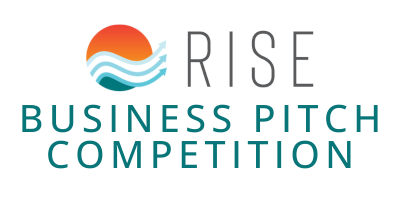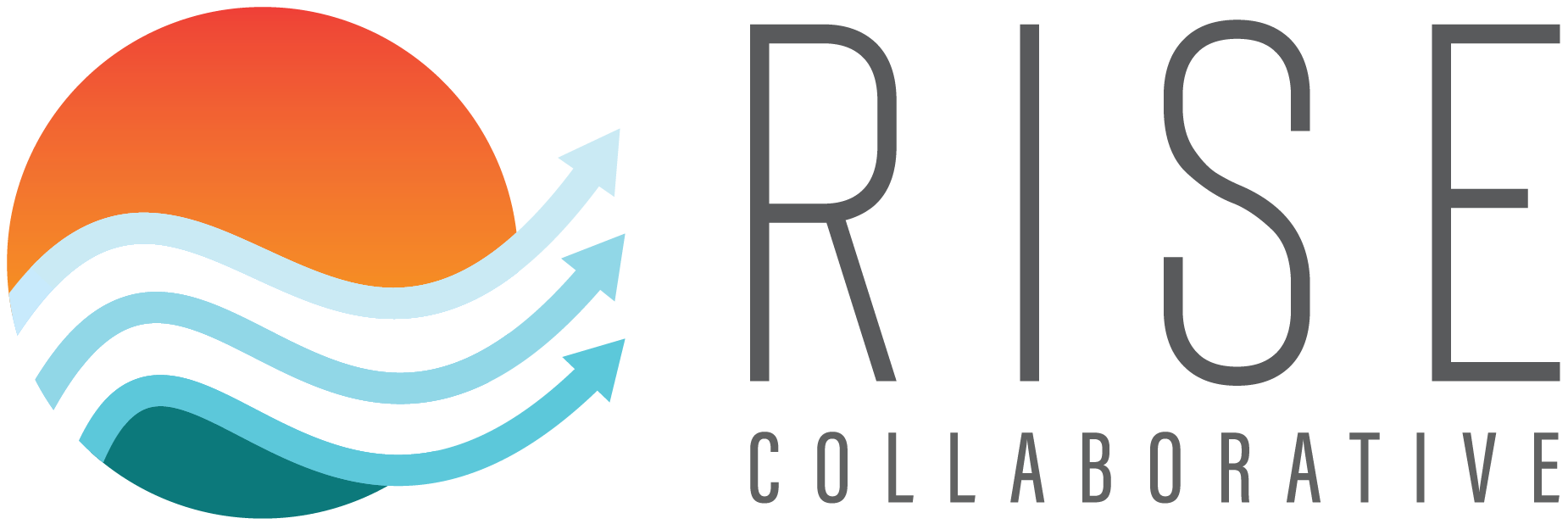Access to Capital (Money!)
Most entrepreneurs need access to capital to start and grow their businesses.
Access to capital is how easy, or how difficult, it is to get money or other resources to start or grow your business. Getting access to capital can be a challenge for anyone. RISE Collaborative wants to make it easier for all entrepreneurs in Southern Virginia to get access to capital of all types, including financial capital, knowledge capital, and social capital.
Financial capital includes startup costs and working capital to cover business expenses, including paying yourself. Entrepreneurs raise financial capital by bootstrapping (relying on personal and business income to get by), debt financing, or equity financing. There are many options for financing in the United States, but entrepreneurs must be well-prepared with both business and personal financial information when seeking financing. Another source of financial capital can be grants. Grants typically do not require the business to take on debt or to give away equity, and typically do require the business to meet certain eligibility and/or performance requirements. Grants can include pitch competition prizes/awards.
Knowledge capital, or intellectual capital, includes knowing the information and having the experience or skills necessary to start and grow your business. If you need help with business plan development, you can improve your knowledge capital by using resources, apply to join the annual RISE Business Bootcamp and sign up for our newsletter for upcoming learning opportunities.
Social capital, or relational capital, is “the networks of relationships among people who live and work in a particular society, enabling that society to function effectively.” If you are looking to expand and deepen your business networks in Southern Virginia, search our Resource Compass to find events hosted by your local Chamber of Commerce, Local Economic Development Organizations, and Regional Economic Development Organizations (REDOs). You’re also invited to join an upcoming RISE Collaborative Meetup >
Upcoming Pitch Competitions

RISE Business Pitch Competition
The 2nd annual RISE Businsess Pitch Competition will be held on June 26 2024 in South Boston, VA. Applications are due May 10, 2024. Hosted by RISE Collaborative and the SOVA Innovation Hub with support from the Longwood SBDC. Apply by May 10!

IdeaFest Business Pitch Competition
Hosted by The Launch Place, the 9th annual IdeaFest business pitch competition will be held on May 1, 2024 in Danville, VA. Applications are due March 29, 2024.
Access to Capital: Recorded Webinars
Frequently Asked Questions: Financial Capital
I want to finance my business. What are my options?
There are two options available to entrepreneurs seeking to finance their business: borrow funds (debt equity) or sell ownership interest in exchange for capital (equity financing). Either option has advantages and disadvantages.
Debt equity, or debt financing, includes borrowing money from family, friends, and/or a lending institution. Traditional lenders mainly include banks, credit unions, and other financial institutions that provide loans to small and medium-sized businesses. There are many options for traditional lenders in the United States, Virginia, and Southern Virginia. There is also an increasing number of non-traditional lending options.
Most traditional lenders require business owners to include a great deal of personal financial information and business financial information, including a business plan if you are launching a new business or expanding an existing business. If you need help developing your business plan, check out our Programs & Events >
Equity financing involves selling a portion of ownership in your business, in exchange for capital. Learn about the types of equity financing at Investopedia >
I want to apply for a business loan. What information do lenders need from me?
likeTraditional lenders include banks, credit unions, and other institutions providing loans to small businesses. Each lender will have a specific list of information they request. Below is a sample list of information you would need to request a business loan.
[ ] Last 3 years of personal tax returns – Be prepared to share copies of your personal tax returns for the prior 3 calendar years.
[ ] Personal Financial Statement (PFS) – The lender will provide you with their institution’s version of the PFS. The PFS provides the lender with a complete picture of all of your current financial assets and obligations. Be prepared to gather and report current information about the balances of any and all credit cards, cash and savings accounts, real estate and other investments, employment income, debt obligations, etc.
[ ] Business Summary including background/history – Be prepared to provide a 1 or 2 page, typed summary of your business. Include the background of your business and its history so far. Include your experiences and qualifications as the business owner. Include the purpose of the requested loan funds – how the funds will be spent and repaid. Include links to your business website, LinkedIn profile, and customer reviews. The goal is to clearly communicate the overall value and potential of your business.
Have you drafted your Business Summary, and want someone to review it? Request a meeting with a Longwood SBDC Consultant >
[ ] Financial projections for the next 2 years – Financial projections may be created in a spreadsheet software (example: Microsoft Excel or Google Sheets). The financial projections include revenue and expenses. The projections need to realistically demonstrate the business can cover all of its existing financial obligations and the payment for the new loan. Financial projections should clearly communicate the impact of the loan funds on the startup and/or growth of the business.
If your business is new or expanding into new products or markets…
[ ] Business Plan – The business plan may be created in a word processing software (example: Microsoft Word or Google Docs) or in a more visual format (example: Microsoft PowerPoint, Prezi, Canva, IdeaBuddy, etc.). The business plan includes the business summary and financial projections described above. The business plan may also include your marketing plan, customer profiles, market research, competitor analysis, etc. The goal is to provide the lender (or other investor) with all the necessary information for to make a decision on your funding request.
Need help developing your business plan? Join the upcoming CO.STARTERS Core Business Bootcamp >
If your business is already operating…
[ ] Last 3 years of business tax returns – If you are a sole proprietor or have been working as a 1099 independent contractor, your business tax returns are included in your personal tax returns. Partnerships and other business types will have separate business tax returns. If you are starting a brand new business, you obviously are not expected to have this yet.
[ ] Most recent interim financials – This includes the following four financial reports: Balance Sheet, Profit and Loss Statement, Accounts Receiving, and Accounts Aging.
Do these financial statement names sounds like gobbledygook? Join the upcoming CO.STARTERS Core Business Bootcamp >
In the meantime, ask your Certified Public Accountant (CPA) or bookkeeper for help. Are you taking a doing-it-yourself approach to bookkeeping? Get free consulting and training through the Virginia SBDC and Longwood SBDC >
I want to seek equity financing. Where do I start?
Learn about the types of equity financing at Investopedia >
Explore resources for innovation-driven entrepreneurs in Southern Virginia, which include:
